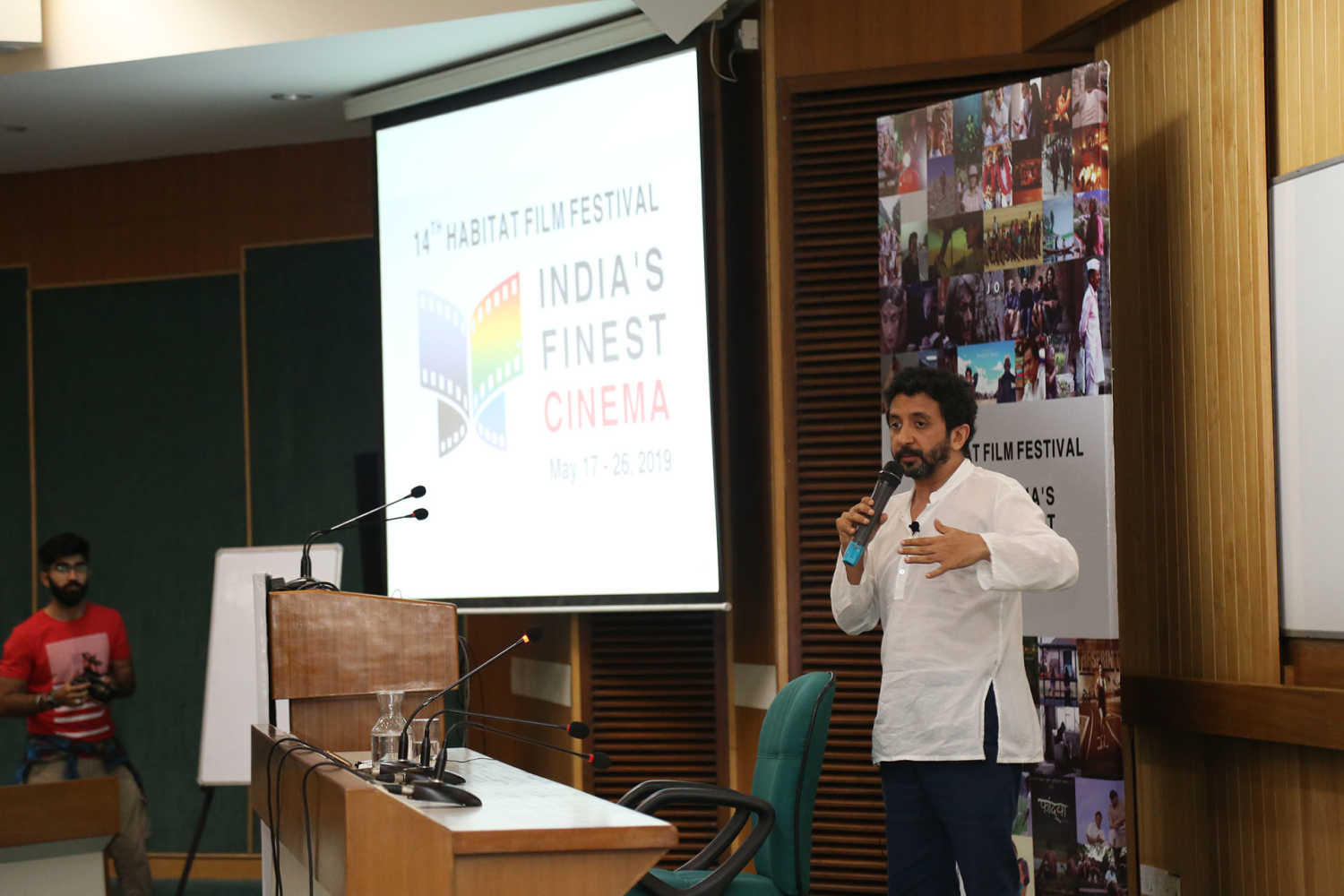Ashvin Kumar, two-time National award-winning filmmaker, on how cinematic storytelling is different from other forms and why he likes to leave some things to the audience.
Creativity doesn't come in a vacuum: Ashvin Kumar masterclass at Habitat 2019
New Delhi - 30 May 2019 7:00 IST


Yatharth Vohra
Ashvin Kumar, two-time National award-winner, India's youngest Oscar nominee, and director of No Fathers In Kashmir (2019), conducted a filmmaking masterclass on the last weekend of the 14th Habitat Film Festival in New Delhi.
Entering in a crisp short kurta, Ashvin Kumar humbly denounced the title of 'master' before beginning a discourse about his art. Along with one of the more illustrious profiles, he also had a great sense of humor and a captivating parlance.
The filmmaker began by posing an innocuous question: why do we tell stories? Someone from the audience responded with something to the effect that stories are a commonwealth of experience, to which Ashvin Kumar added "that keeps on repeating."
Ultimately, he revealed his view: we tell stories to "place an order on the chaos" since "our lives are brutal, short and unpredictable". Comparing organized religion and cinema, he made his second point: audiences are ready to vest power in certain symbols and "suspend their disbelief".

Ashvin Kumar said it is the job of a filmmaker to create a cocoon around the audience, ensuring that once its members are immersed in the story, the suspension of disbelief stays from start to end, only breaking with popcorn intervals, substandard dialogues and inept costuming.
Using 'Bollywood', as mainstream Hindi cinema is often called, as his example, he explained how excessive dialogue reveals everything and does not provoke the audience to think.
One of the harshest reminders he served was the need to tie oneself in restraints, be they budgetary or artistic, thus forcing oneself to be imaginative. "Creativity doesn't come in a vacuum, and this is the paradox of plenty," he suggested. "The tighter your facilities are, the more you have to work to create. The trick is creating challenges for yourself.
"The way I like to make films is, I come in a little late, maybe after 25% of the scene is done, and leave a little early, before the final word is spoken. This involves the audience, makes them wonder what would happen next," he professed.
To him, the essence of cinema is to be able to bring your imagination to the visual, to colour it with your own culture and understanding, and yet come out with a common experience. Cinema, according to him, allows the audience the privilege of creating their own meanings and pulling themselves into the film rather than "being dictated to in a pedantic, explanatory, didactic, pontificating manner — or abusing their intelligence", which separates it from other forms of storytelling.
During the Q&A session that followed, one of the questions led to a short workshop-like segment, where audience members were asked for inputs to create a perfect scene, with feedback from Ashvin Kumar. He also revealed his plan to act in a filmmaker's debut, and spoke about the web-series he plans to direct and produce.
Related topics
Habitat Film Festival

